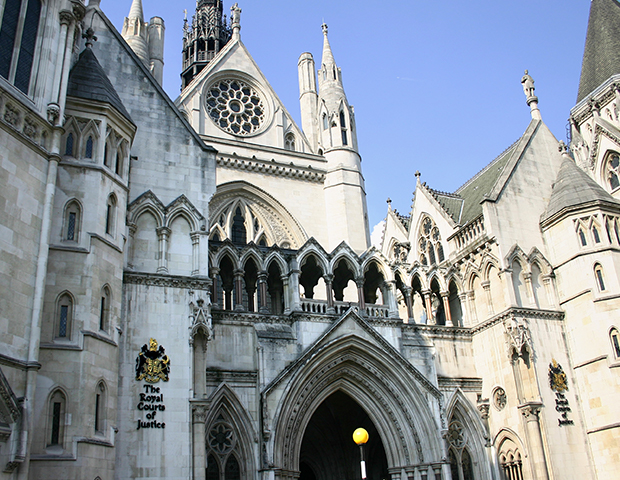RPS may face high court over expulsion of EPB member
In Profession
Follow this topic
Bookmark
Record learning outcomes

By Neil Trainis
The Royal Pharmaceutical Society (RPS) is facing the prospect of being taken to the high court over the way it removed Sultan 'Sid' Dajani from the English Pharmacy Board (EPB) last year.
Mr Dajani told Independent Community Pharmacist he has applied for a judicial review of the process the professional leadership body followed in the run-up to the suspension of his RPS membership and removal of his place on the EPB after a series of grievances were lodged against him, all of which were deemed by the General Pharmaceutical Council (GPhC) in June this year not to have met the threshold required for a fitness-to-practice hearing.
A judgement on the judicial review is expected to be handed down at the end of this month.
Mr Dajani, who was elected as an EPB member in June 2018, was barred from entering the RPS' East Smithfield headquarters before the RPS had officially started investigating the complaints against him. The grievances against him included inappropriate comments on social media in April 2018, inappropriate behaviour towards an RPS senior executive and inaccurate, fraudulent expenses claims.
Dajani was accused of dishonestly altering 16 taxi receipts worth a total of £94 over an eight-year period, a claim he vigorously denied.
Suspension
In the run-up to the start of the RPS’ investigations, Anne Boyter, chair of the membership committee and conduct panel which went on to investigate the complaints, wrote to Mr Dajani on July 10, 2018 telling him his RPS membership would be suspended and he would not be allowed to enter the RPS building or discharge any functions of his role as an elected EPB member. Ms Boyter also told him the matter had been referred to the GPhC.
“The first thing I heard about it was this letter saying ‘you’re not allowed in the building,’ don’t use your nominals, oh by the way, we’ve referred you to the General Pharmaceutical Council,” Mr Dajani said.
“(They said) ‘you’re not allowed to contact any other board member and you’re not allowed to dispose of any paperwork you’ve had off the RPS.’ They didn’t say we could have representation, absolutely nothing at all. I was literally blinded. And there was no warning this was happening.”
He claimed his case was eventually heard by the RPS through a standard membership committee and not a transparent board members’ committee which has a legally qualified, independent chair and two independent lay representatives from other professions who are not connected to the complainants or the person who is the subject of the complaint.
GPhC "discarded" allegations
In June this year the GPhC said none of the charges against Mr Dajani should be referred to its investigating committee as they did not meet the threshold for referral.
“(The GPhC) basically said there’s no case to answer for, not a single thing, whether it’s to do with the fraudulent expenses, whether it’s to do with complaints, all of it was absolutely discarded,” Mr Dajani said.
“They didn’t even go to the next stage. It didn’t even go to the hanging committee on the top floor. They basically said ‘we’re not referring it any further, it’s dropped, the case.’ No case to answer for.”
Mr Dajani said he had been the victim of false allegations having expressed concerns to EPB members over the expenses of some RPS officials and the management of the sale of the old RPS headquarters in Lambeth High Street and relocation to East Smithfield.
The RPS sold its Lambeth High Street base for £15m in 2013 before it was re-sold for £30m just over a year later.
Judicial review
It is believed Dajani contacted RPS chief executive Paul Bennett to express concerns that his removal from the EPB was politically motivated and the process conducted unfairly. Mr Dajani claimed the RPS failed to give him an opportunity to put his case across verbally during it investigations.
He said his lawyers contacted the RPS at the start of May this year, informing it that he would press for a judicial review if he did not receive a satisfactory answer to his concerns. Dajani’s lawyers have since lodged an application for that review.
“The RPS know that we’re going through a judicial review. I’ve already instructed the barristers,” he said.
“They put a letter before action in at the beginning of May and they had to inform the Society they were doing this.”
In May the RPS announced that six candidates had taken their place on the EPB, despite the fact that five vacancies were originally expected to be filled.
The RPS described the sixth place, which came about following the suspension of Dajani’s RPS membership and removal from the board, as “a casual vacancy” and refused to comment on the circumstances surrounding it.
The RPS has not responded to requests for comment.
